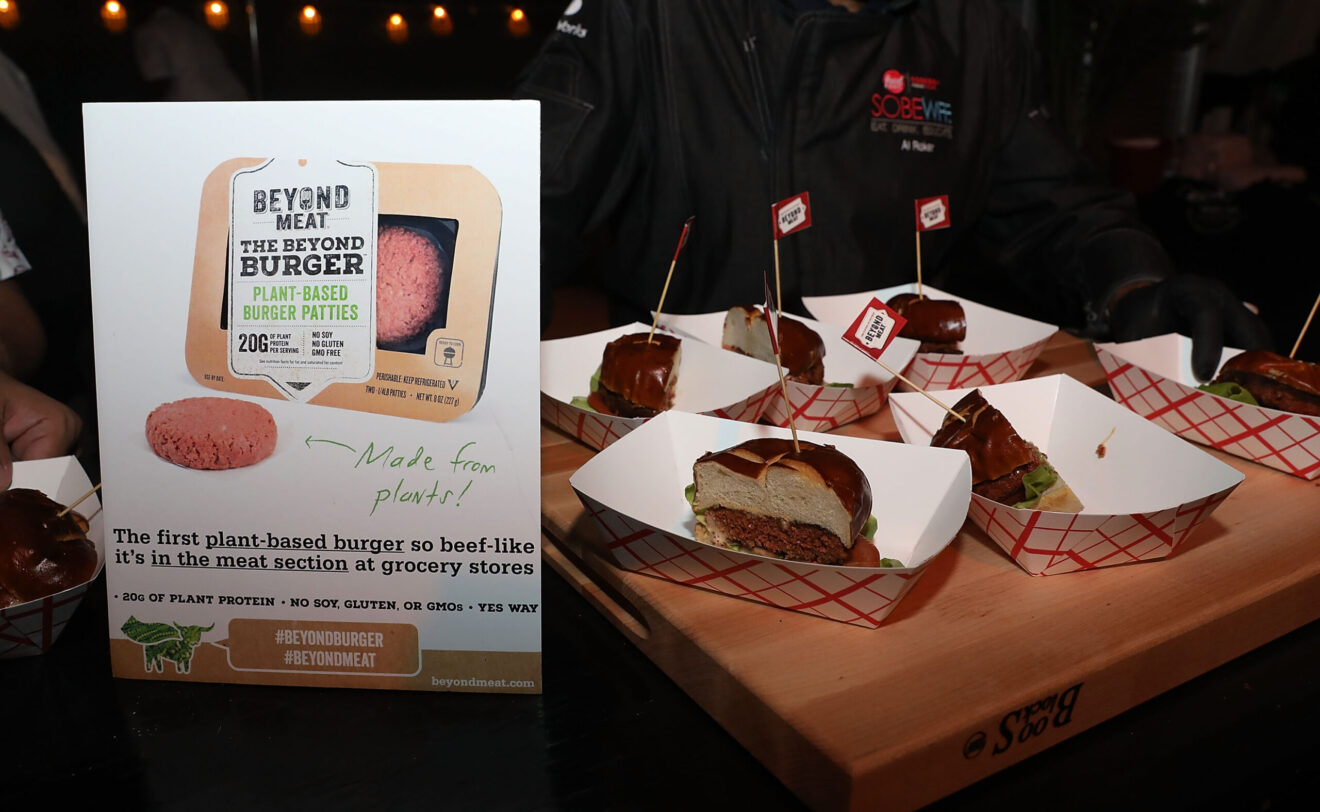Eateries that used to offer only salads, side dishes or the same old pasta dish to vegetarian and vegan guests are getting more innovative to feed a growing craving for plant-based options, especially when it comes to meat replacements.
The percentage of US consumers who identify as vegetarian or vegan has stayed steady over the past few decades, according to a recent Gallup Poll, but a growing number of people are trading meat for plant-based protein options at least sometimes. In response, more mainstream restaurants are putting plant-based burgers and other vegan meat and dairy substitutes on the menu.
White Castle made news when it added its plant-based Veggie Slider to the menu and other major chains have started serving the vegan Beyond Burger, including TGI Friday’s which made it a permanent menu item at 500 locations last year.
But it just might be the smaller players that are making the bigger changes.
Foodservice suppliers reported a 19% rise in shipments of plant-based proteins to small independent restaurants and chains with fewer than 19 units, in the 12-month period that ended in March 2018, according to NPD Group.
“The reality is that American consumers want to add more protein to their diet,” said David Portalatin, NPD’s food industry adviser.
Besides the 5% to 6% of consumers who identify as vegetarian and the even smaller 2% to 3% who call themselves vegan, a growing number of people are opting for flexitarian eating styles. That could mean cutting out meat altogether on some days or at some meals, or adding more protein options as they cut carbs or other ingredients out of their diets, he said.
“For some it’s not an either or,” Portalatin said. “Sixty percent of the population wants to add protein, and if you give them multiple new ways to add that protein, they’re going to try it.”
Beef alternatives comprise 44% of the plant-based foods shipped to indie eateries and small chains, NPD found, led by burgers.
That makes sense when looking at the dining out statistics, Portalatin said. About 82% of the meals US consumers eat are prepared at home and 18% are sourced away from home, but those percentages almost flip when it comes to burgers, he said.
“I think the change is really being driven by innovation in the category,” he said.
Creating a vegan version of the menu
For Jeff DeBlasio, that innovation came at a time when he was making some changes in his own life. The menu at DeBlasio’s Stewart’s Root Beer restaurant in Hazlet, N.J., had always had some lighter fare in addition to the pizza, burgers, hot dogs and fries. Then DeBlasio and his girlfriend decided to go vegan after watching a documentary about the meat industry, and their plant-based home cooking turned out so tasty they decided to add new options to the menu.
“We put our pizza on Facebook and we got 1,500 likes and 250 comments, and a friend who is vegan tagged me in a post and asked me to answer some questions, and I jumped into the conversation,” he said.
The shift started with vegan pizza and grew into a mission to create plant-based versions of everything on the menu.
“I’m cooking [vegan] meatball parms, chicken parms, and it tastes the same to me. It’s an easy transition, it’s easy comfort food. I try to tell people. I do it for the animals but I actually enjoy the taste,” he said.
Beyond Burgers followed, as did vegans in the area, some of whom drove 45 minutes or more for a meal. DeBlasio sought feedback from Facebook fans and vegan customers to craft the plant-based menu, which he expects to expand further with breakfast options and ice cream.
DeBlasio is a licensee and not a franchisee of Stewart’s, which means he has broad freedom to craft the menu that works in his restaurant. Fellow Stewart’s licensees Jake and Jackie Mullis in Howell, N.J., added the Beyond Burger to their menu this week, after hearing about its growing popularity at DeBlasio’s restaurant.
The Howell eatery had always had a black bean burger on the menu, and demand for that item has grown along with customer demand for healthier options, Jake Mullis said.
“And there are those who just like the taste, and they add bacon and cheese and so forth,” he said.
Supply and demand
Demand is growing fast at both the restaurant and retail level for products like the Beyond Burger and the Impossible Burger, which mimic beef much more closely than earlier veggie burger options.
That strong demand can create supply issues.
“Distribution is the number one issue,” said DeBlasio, who works with US Foods, Sysco and other distributors to source the products he needs.
“I had to do a lot of research,” he said. “It can be very hard to get the correct products from distributors.”
That’s an issue he hopes will change as demand continues to grow.
“In 20 years, everybody could be vegan.
____________________________________________
If you enjoyed this article, sign up for Restaurant Smartbrief to get news like this in your inbox, or check out all of SmartBrief’s food and travel newsletters as we offer more than 30 newsletters covering the food and travel industries from restaurants, food retail and food manufacturing to business travel, the airline and hotel industries and gaming.
